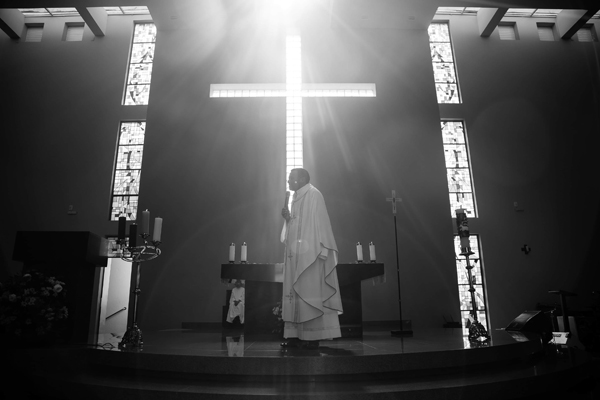
May a priest or a member of the ecclesiastics run for public office?
The question finds relevance in the the constitutional provision which states The separation of Church and State shall be inviolable.
The Catholic Church actually prohibits their priests from running for public office. Their Code of Canon Law provides: Clerics are forbidden to assume public offices which entail a participation in the exercise of civil power.
In Pamil vs Teleron (1978), several justices expressed: “How can one who swore to serve the Church’s interest above all be in duty to enforce state policies which at times may conflict with church tenets? This is in violation of the separation of the church and state.”
In the Revised Administrative Code of 1917 (RAC), there was an express prohibition against members of the clergy from running for public office, elective or in an appointive capacity. The provision reads:
Section 2175. xxx in no case shall there be elected or appointed to a municipal office ecclesiastics, soldiers in active service, persons receiving salaries or compensation from provincial or national funds, or contractors for public works of the municipality.
In Pamil, the Supreme Court was tasked to answer whether or not this provision of the RAC was repealed by the Election Code of 1971. It was a fact that nowhere in the disqualifications against election candidates did the 1971 Election Code state that members of the ecclesiastics are barred from seeking public office. Hence, in Pamil, Rev. Fr. Margarito Gonzaga was arguing that he can hold public office because Section 2175 of the RAC was repealed. The Supreme Court however ruled that there was no express repeal hence Section 2175 still stands.
The constitutionality of Section 2175 was likewise challenged. It was argued that under the 1935 Constitution, Section 2175 is unconstitutional for “No religious test shall be required for the exercise of civil or political rights“. But the Supreme Court sitting en banc could not gather enough vote to declare Section 2175 unconstitutional. Hence, in Pamil, the high court declared that ecclesiastics are prohibited from seeking public office.
BUT, during the term of President Corazon Aquino, Executive Order No. 292 or the Administrative Code of 1987 was enacted. EO 292 expressly repealed the RAC. So, as of now, despite the internal prohibition by the Catholic Church against their priests from running for public office, a priest, or any member of the ecclesiastics for that matter, can and may legally seek election for any public office.
Note also that under the Omnibus Election Code (1985), just like the Election Code of 1971, nowhere was it expressly stated that being a member of the ecclesiastics disqualifies a person from running for public office. The rule is, a candidate is qualified so long as he or she does not possess any of the disqualification and has all the qualifications.

